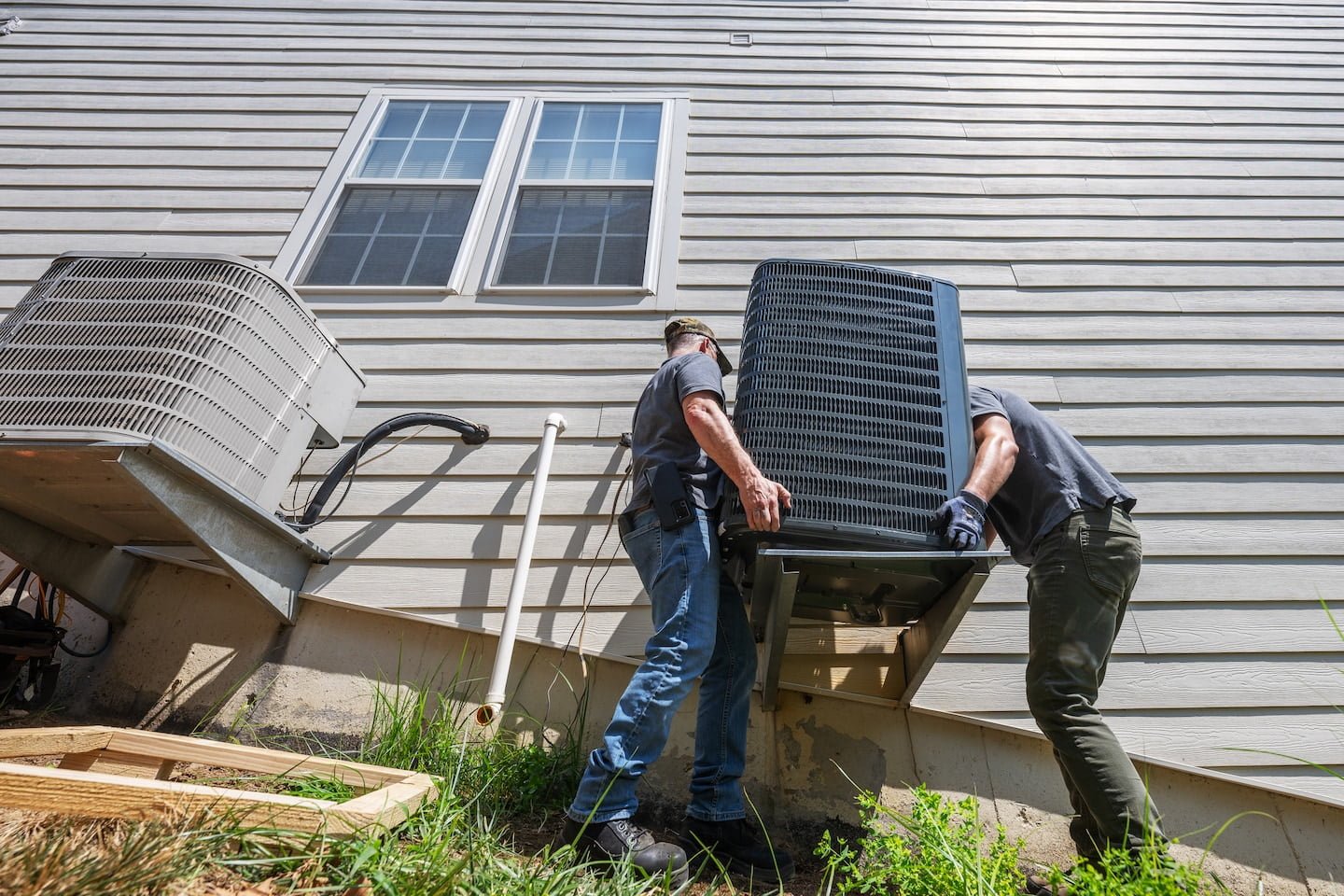
This summer is already the hottest on record in D.C. Temperatures surpassed 101 degrees for a record-breaking four consecutive days this month. More than 150 million people were under heat alerts across the country in July as triple-digit temperatures blasted the East Coast and parts of the Midwest.
Bedard expects the increased demand for air-conditioning fixes to persist as summers get hotter and people keep their units longer.
The global market for air conditioning has seen an average annual growth rate of 7 percent over the past decade, according to a 2024 report from the Building Services Research and Information Association. In 2018, the International Energy Agency forecast that the global stock of air conditioners in buildings would grow to 5.6 billion by 2050, up from 1.6 billion.
Although much of that demand will come from outside the United States, domestic demand for new and repaired units is far from peaking, Bedard said. Most new air-conditioning units last between 15 and 20 years, so those installed as the U.S. housing market rebounded from the 2008 financial crisis are starting to fail, he said.
Air-conditioning contractors prepare all year for hot weather, but it’s hard to prepare for a season this warm, professionals said. Perry Hugee’s D.C.-based HVAC business employs 37 full-time workers, but the company has struggled to keep up with demand for air-conditioning fixes this summer.
“It’s at the point where I’m going out on the job myself,” said Hugee, 70. “I’m retired from working in the field, but I’ve got to go put my tool belt back on because there’s a need.”
About 70 percent of his business’s recent repair jobs have been emergencies, Hugee said, including fixes at local hospitals, churches and schools. Many of those units have been poorly maintained or are too old to withstand record-breaking temperatures, he said.
The same hot weather that has people calling for Hugee’s services can also take a toll on his workers, lengthening the time spent on each job. Yet they have to take advantage of the increased demand, he said.
“I tell my guys, ‘This is what we’ve been looking for. We have three months to bring in the harvest,’” Hugee said. “So we have to endure hardship, and the hardship is the heat.”
High temperatures usually bring big business for Jay Krafft, who owns an Alexandria, Va.-based company that specializes in heating and air-conditioning systems. But the recent string of record-shattering heat waves has prompted more emergency repair calls and forced contractors to work longer days outside — often on rooftops, where heat indexes can be 20 degrees hotter than on the ground.
“You’ve heard that adage ‘When life gives you lemons, you make lemonade?’” Krafft said. “Well, with this type of summer, we’ve got about 20 bushels of lemons, so we’re making a lot of lemonade.”
Ideally, HVAC demand would follow a “roller coaster” of temperatures, Krafft said.
But extended stretches of hot weather, when contractors don’t get a break from responding to heat emergencies, keep them from fulfilling regular summer commitments to warranty customers and those who have contracts for regular tuneups, said Maurice Noori, who works at regional HVAC company Michael and Son.
“It’s a lot of maneuvering chess pieces on a big, gigantic chessboard,” Noori said.
One of Michael and Son’s most recent chess moves involved a weeks-long repair at a townhouse in Bethesda, Md., where the company’s contractors have made several visits this month while its residents sheltered elsewhere temporarily. On a scorching day in mid-July, contractor Mohan Maharjan arrived to finish the job.
After nine summers with Michael and Son, Maharjan has plenty of strategies to beat the heat. He swears by his cooling vest, which absorbs and slowly releases water to envelop him in cold air. He also carries a magnetic umbrella that can stick to any outdoor fan he encounters.
On this particular day, as the area’s feels-like temperatures approached 100 degrees, all Maharjan needed to stay cool was a sliver of shade on the home’s rooftop porch while he fixed a broken piece in the central air unit, added coolant and checked its pressure. After four hours of work throughout the morning, he suddenly raced down four flights of stairs to see whether air was finally flowing in the basement.
As Maharjan stood in a dark hallway outside the utility closet, the air-conditioning unit’s familiar hum rang through the house, signaling his work was done.
Most of Maharjan’s repairs this summer have taken about an hour, but longer jobs like the one in Bethesda make it hard to meet the record demand — even as contractors clock 14-hour days. “We’re getting really busy, and we try to fit in as much as we can,” Maharjan said.
HVAC companies are also struggling with supply-chain issues that date back to the height of the pandemic. During heat waves, businesses don’t have the luxury of waiting for parts that might take weeks to arrive, Krafft said, adding that contractors use a mix of methods to keep up with demand and make at least a dozen repair visits a day.
His company keeps a board for jobs that receive short-term replacements and need to be revisited when the heat breaks, Krafft said. If a contractor can’t come up with a quick solution, they drop off a portable unit at the customer’s home.
Hugee believes his industry will face an equipment shortage by mid-August, given that contractors are barely halfway through a summer that has already set records for high temperatures. “Even without the heat, we have enough problems trying to get the parts and the equipment,” Hugee said.
Krafft’s air-conditioning replacement business was already heating up before summer temperatures set in. His company recently found itself servicing more consumers interested in energy-efficient cooling options, such as heat pumps. That kept business busy during the typically slow spring season.
The industry is working overtime to meet demand fueled by high temperatures and consumers’ desire for more energy efficiency, but new Environmental Protection Agency requirements for refrigerants — key chemicals used in HVAC systems — are set to throw another supply-related curveball to contractors later this year.
“Not only do we have the units working harder, and we have to prepare for that, but we also have what the industry throws at us,” Krafft said. “ … I don’t know what’s going to happen, but it’s always changing, and that, in turn, keeps us busy, which is a good thing.”

